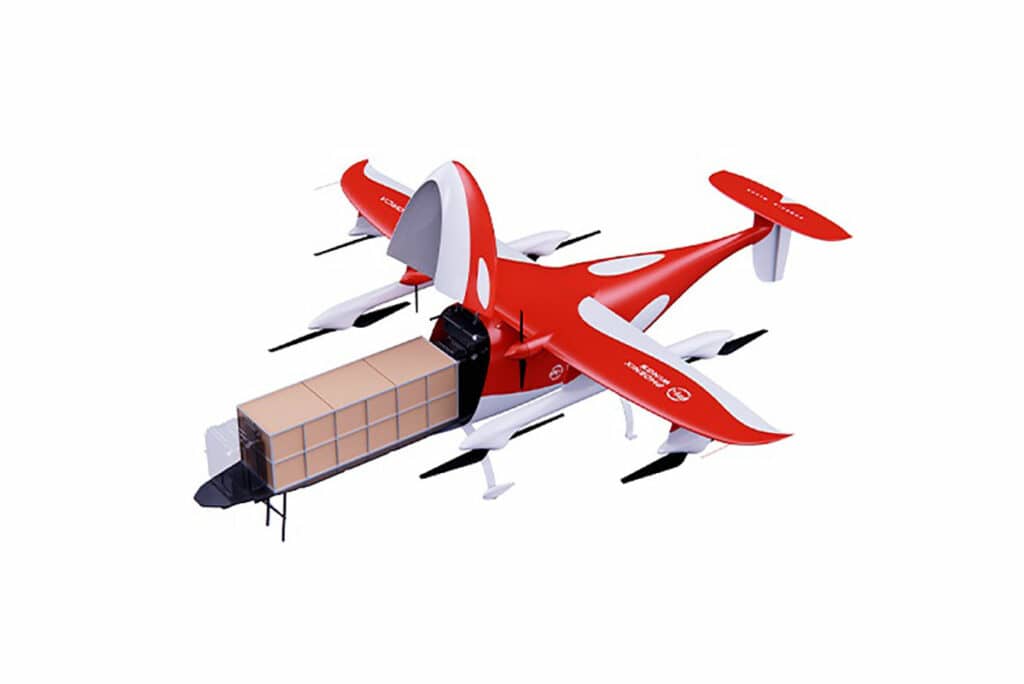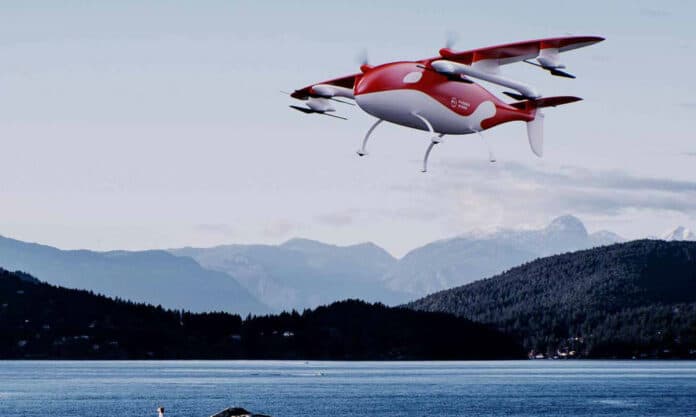A German-based cargo drone company, Phoenix-Wings, has launched PW.Orca, a heavy-duty UAV (unmanned aerial vehicle) that boasts an impressive wingspan-to-payload ratio and a unique design.
With a wingspan of 2.98 meters, the PW.Orca is designed with safety in mind and is the right choice for bulky and heavy goods. The drone features a unique design with a large nose canopy that offers easy cargo access. The heavy-duty drone provides more payload capability than any other competitor in its class. The payload compartment accommodates all applicable box size standards, as well as the possibility for loading and unloading automation through the cargo rail system, embedded payload doors, and nose canopy.
The heavy-duty drone can carry up to 15 kg (33 lb) of payload in its modular, 96-liter bay. Its high cruise speed of 110 km/h minimizes the time to destination – and allows PW.Orca to perform more jobs in the same timeframe. Despite its high speed, the drone can serve up to 160 km (100 miles).

The PW.Orca offers an already impressive range of 60 km (37 miles), and that range increases with smaller payloads. With 10 kg onboard, the heavy-duty UAV can fly 100 km (62 miles) on a charge, while with a 5 kg payload, it offers 130 km (80 miles) of range per charge. Its parachute rescue system allows it to operate beyond visual line of sight over sparsely populated areas in the Specific Assurance and Integrity Level SAIL II.
In addition, PW.Orca is a low-emission aircraft and has a low noise signature, which enables your routes over populated areas without public complaints. Its other notable features include redundant powertrains, sensors, and actuators; fully automatic from power-on to power-off; ability to withstand other adverse weather conditions like light rain and sea salt aerosols. The PW.Orca, with its airframe and proprietary flight control algorithms, easily handles wind speeds of up to 45 km/h (28 mph).
The company hasn’t yet revealed any price details about the PW.Orca.
